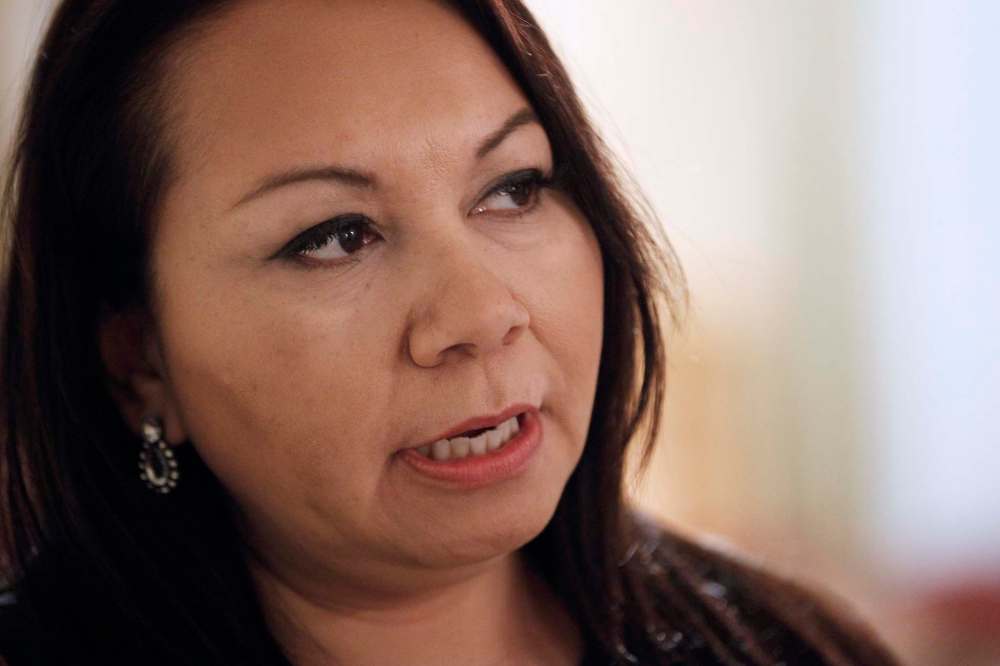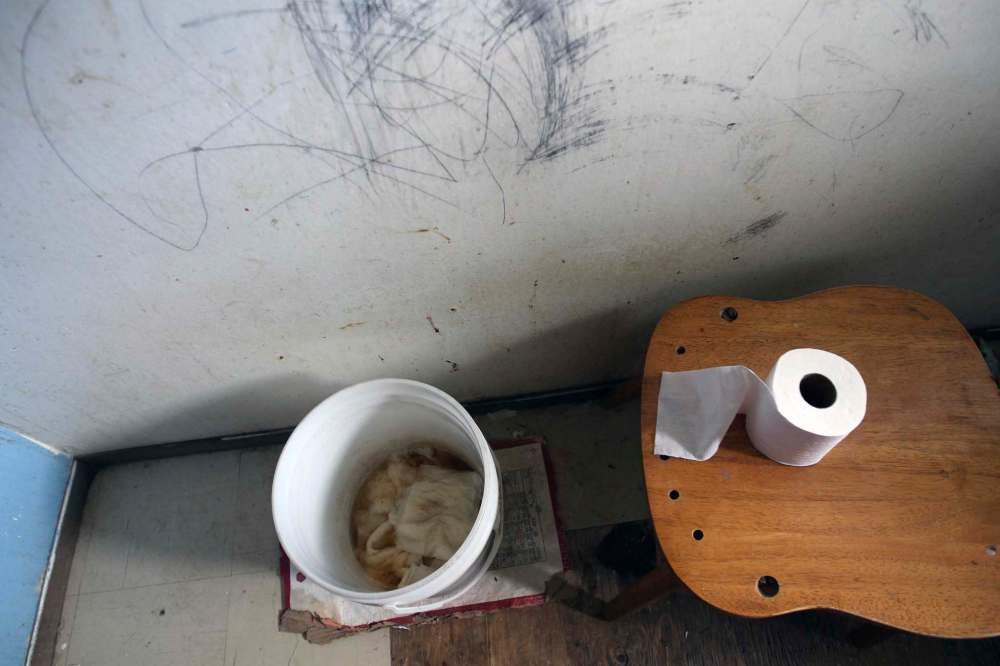Budget earmarks $8.4B for indigenous programs
Advertisement
Read this article for free:
or
Already have an account? Log in here »
To continue reading, please subscribe:
Monthly Digital Subscription
$1 per week for 24 weeks*
- Enjoy unlimited reading on winnipegfreepress.com
- Read the E-Edition, our digital replica newspaper
- Access News Break, our award-winning app
- Play interactive puzzles
*Billed as $4.00 plus GST every four weeks. After 24 weeks, price increases to the regular rate of $19.00 plus GST every four weeks. Offer available to new and qualified returning subscribers only. Cancel any time.
Monthly Digital Subscription
$4.75/week*
- Enjoy unlimited reading on winnipegfreepress.com
- Read the E-Edition, our digital replica newspaper
- Access News Break, our award-winning app
- Play interactive puzzles
*Billed as $19 plus GST every four weeks. Cancel any time.
To continue reading, please subscribe:
Add Free Press access to your Brandon Sun subscription for only an additional
$1 for the first 4 weeks*
*Your next subscription payment will increase by $1.00 and you will be charged $16.99 plus GST for four weeks. After four weeks, your payment will increase to $23.99 plus GST every four weeks.
Read unlimited articles for free today:
or
Already have an account? Log in here »
Hey there, time traveller!
This article was published 22/03/2016 (3493 days ago), so information in it may no longer be current.
OTTAWA — An $8.4-billion injection of cash for everything from cleaner water to housing and education on reserves is one of the single biggest aspects of the new federal budget, but critics say the money is being spent too slowly.
Finance Minister Bill Morneau said the investment in indigenous programs is “one of the things I’m most proud of in this budget.”
“It’s significantly more than the Kelowna Accord,” Morneau said, referring to the $5-billion agreement reached in 2005 between First Nations and the Chretien Liberal government that was shelved when the Conservatives took power in 2006.

As promised, the budget lifts the two per cent cap on annual spending increases for programs in Indigenous and Northern Affairs Canada (INAC). The budget document notes in five years, spending on indigenous programs will be 22 per cent higher than it would have been if the cap remained in place.
There is also an increase in funding for aboriginal organizations such as the Assembly of First Nations and the Assembly of Manitoba Chiefs, which saw their funding cut drastically by the previous government. Morneau said the money is to ensure First Nations have the resources needed to negotiate with Ottawa fairly.
The broad strokes of the new spending over the next five years include $635 million for on-reserve child-welfare programs, $2.6 billion for on-reserve education programs and another $1 billion to build and renovate schools on reserves, and more than $2 billion to end boil-water advisories on reserves and invest in proper monitoring and testing of drinking water.
Also, $554 million is pegged for the next two years for First Nations housing, including $416.6 million to address the immediate needs of housing on reserves, and $138 million for a Canada Mortgage and Housing Corporation program to renovate existing housing stock. That is but a pittance of what is likely needed, as a recent internal report estimated $2 billion would be needed to address dilapidated housing in Manitoba alone.
It’s true that $8.4 billion won’t fix everything but it’s a start, said First Nation grand chiefs from Manitoba.
Assembly of Manitoba Chiefs leader Derek Nepinak said the budget document echoed the same keen need for child welfare reform called for by Manitoba’s indigenous people, away from removing children and resetting the focus to restoring families.
“It’s an indication to us, as indigenous people, that the Liberal government is looking at necessary investments for First Nations people, particularly with children, in education and but also children in CFS care. Particularly the reforms we need in Manitoba to get out of this apprehension model we’re living with,” Nepinak said.
“I’m content we’re on the right track now.”
Sheila North Wilson, grand chief of the Manitoba Keewatinowi Okimakanak, said the province’s northern communities will be parsing the budget carefully in the coming days, too, but she also expressed similar hopes.
It’s the first investment in First Nations in a decade, she said.
“It’s a good first start to what our communities and our people need across this country. It doesn’t meet the needs but it’s a good first start,” North Wilson said.
Cindy Blackstock, head of the First Nations Child and Family Caring Society, said it is a lot of money but too much of it won’t be spent for three, four or even five years.
“You want to be grateful there is some relief but when it still results in discrimination for kids it’s not a comforting budget,” she said.
A recent Canadian Human Rights Tribunal ruling said Indigenous and Northern Affairs Canada has been discriminating against kids on reserves for years by chronically underfunding child-welfare programs. Blackstock said an immediate injection of $109 million for Child and Family Services was needed this year, with at least three per cent growth in each subsequent year.

Instead there will be $71 million in new money spent in 2016-17 and $99 million in 2017-18. Department spokespeople confirmed those amounts also include increased costs of foster care, which go up at least 10 per cent a year. Blackstock said that will leave even less for the prevention and family-assistance programs sorely lacking on reserves.
Manitoba First Nations child welfare agencies not only have less money compared to off-reserve provincial child welfare agencies, they also work under tighter restraints with the money they have.
“At a system level, are they looking at ways to improve how the system works?” said Richard De La Ronde, the executive director of the Sandy Bay First Nations CFS, which oversees care of about 400 children in southern Manitoba.
“Funding isn’t the necessarily the whole issue. A lot of it has to do with what we could do with the money we were getting, the way we do child welfare,” De La Ronde said.
“You have social workers who are case managers, and they’re after hours on call workers and abuse workers. You have three jobs one person is doing on reserve,” the Manitoba indigenous child welfare official said.
Blackstock said disparities in how child welfare works on First Nations, and the funding discrepancies, are the biggest problems with the current system.
“It perpetuates the discrimination First Nations children experience,” she said.
Only about one-quarter of the money earmarked for education and child welfare will be spent in the first two years, and one-third of that is earmarked for clean water.
There is no mention in the budget of funding for the Freedom Road link to Shoal Lake 40 First Nation to the TransCanada Highway near the Manitoba/Ontario border. Prime Minister Justin Trudeau pledged to come up with the funds for Ottawa’s share of the road during the election, and the government has reiterated that pledge since.
mia.rabson@freepress.mb.ca
alexandra.paul@freepress.mb.ca


